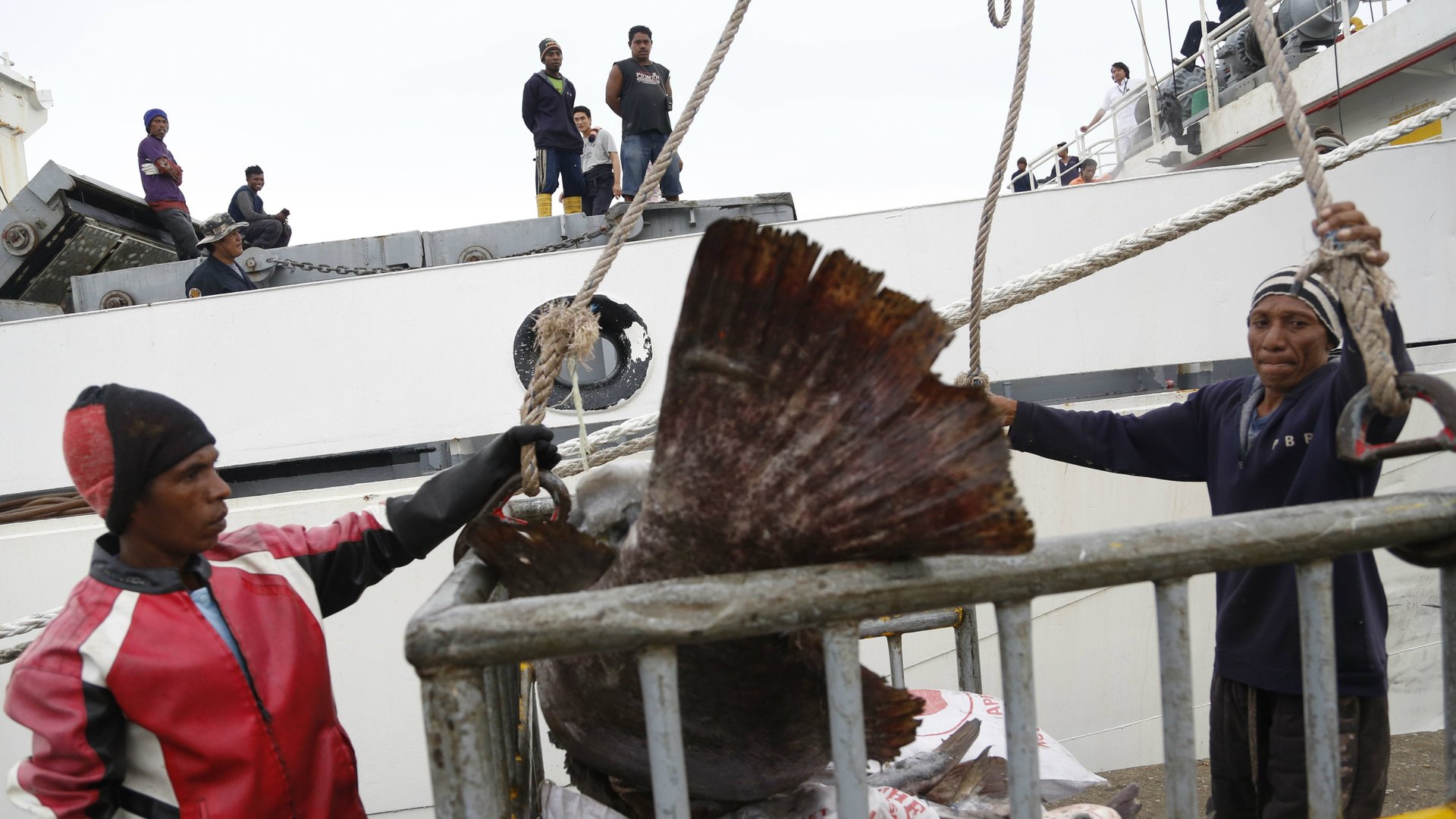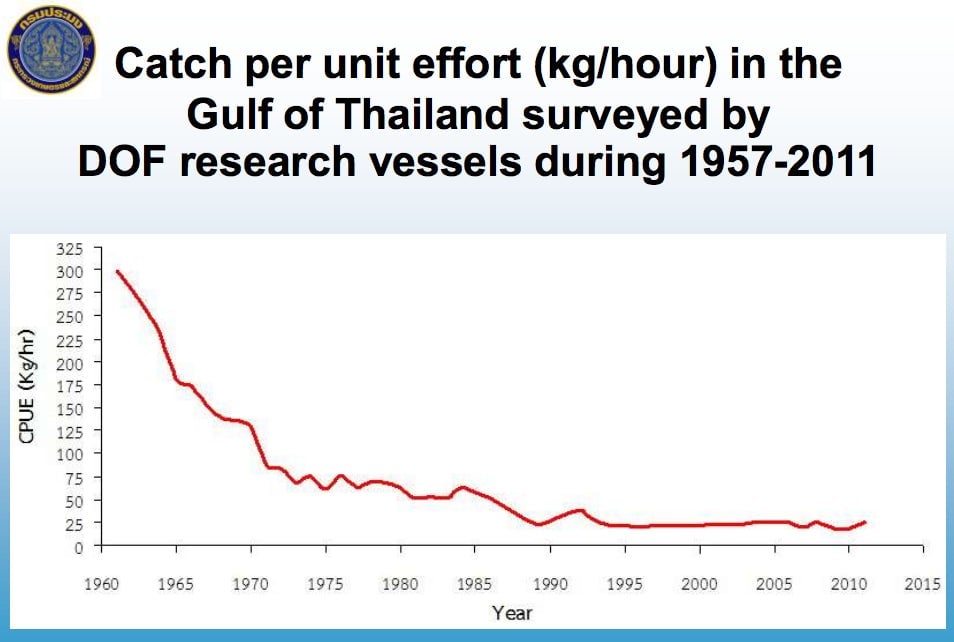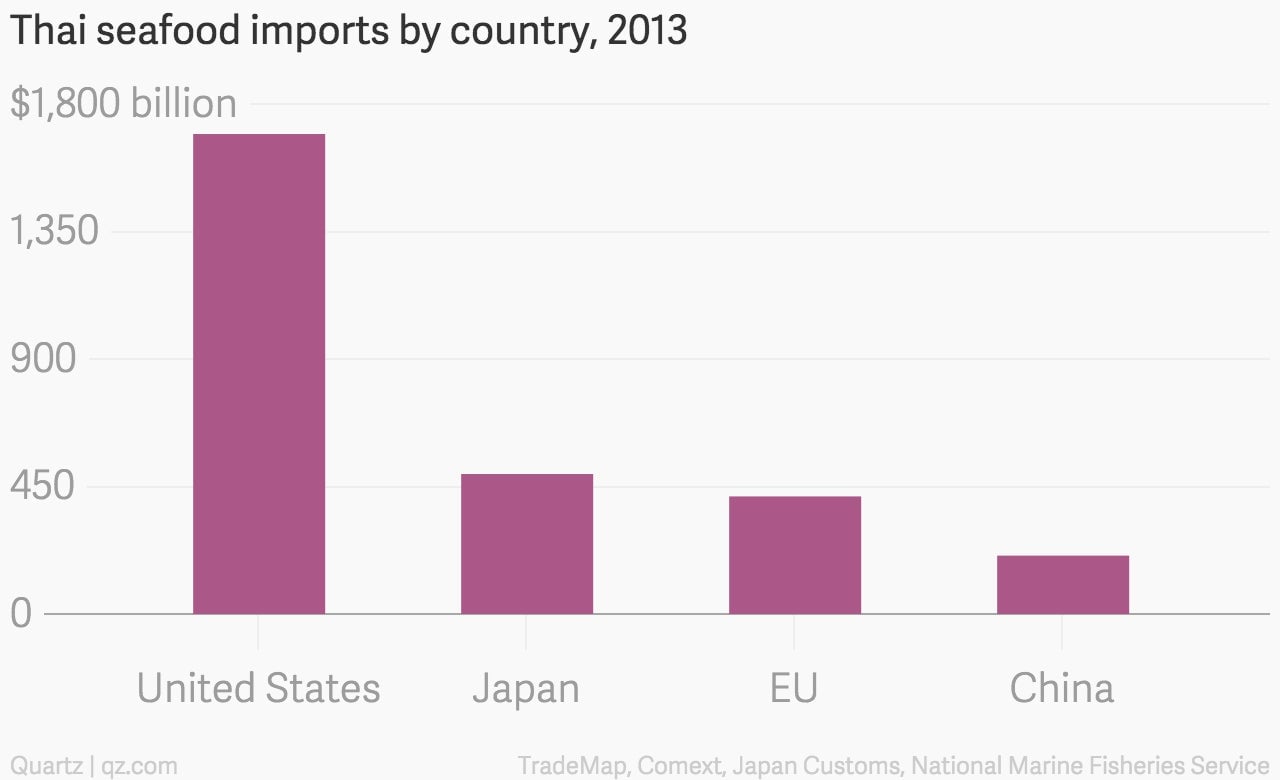The EU is threatening to ban imports from Thailand’s slavery-dependent fishing industry
The European Union is giving Thailand, the world’s third-largest seafood exporter, six months to clean up illegal and unregulated fishing or face a ban that would block nearly half a billion euros ($534 million) in annual exports, according to the Associated Press and the BBC Thai Service (link in Thai).


The European Union is giving Thailand, the world’s third-largest seafood exporter, six months to clean up illegal and unregulated fishing or face a ban that would block nearly half a billion euros ($534 million) in annual exports, according to the Associated Press and the BBC Thai Service (link in Thai).
Overfishing in Thai waters is closely tied to rampant slavery and human rights abuses in the fishing industry, which have prompted advocacy groups and the US government to condemn Thailand’s human rights record. The Thai military junta was forced earlier this year to back down from plans to use convicts as forced labor on fishing boats, and it has ordered domestic media not to report on slavery in the industry.
Some 90% of the 300,000 people working in the Thai fishing industry are migrants from surrounding countries, and many of them are tricked into working on boats for many months at a time, where they are horribly mistreated and often not paid. As Quartz’s Gwynn Guilford has reported, if your mackerel came from Thailand, an enslaved migrant from Myanmar probably caught it:
The threat of violence is constant. One escaped migrant tells of captains beating them with a stingray tail; others tell of torture and even murder. One Thai fisherman saw a captain execute his 14-man crew; it was easier than paying wages.
Thailand’s poorly regulated fishing industry has overfished pretty much every valuable native species (pdf, p.16, 36), which means its ships have to travel farther to fill their nets:

A report by the Environental Justice Foundation last year found that ”declining catches have led to operators cutting costs further by using slave and forced labor.”
Europe’s imports of Thai seafood are significant, but still tiny compared to the volume of Thai fish and shrimp that is sold to the United States.

In its 2014 Trafficking in Persons Report, the US downgraded Thailand to Tier III, the lowest level, due in large part to the human trafficking and other human rights abuses in the fishing industry. But the Obama administration decided to waive the economic sanctions that are supposed to follow such a designation—an option that the US often exercises for national security reasons.
If the US is serious about addressing the myriad and well-documented human rights abuses in Thailand, then it should consider following the EU’s lead, and threaten a full seafood ban unless Thailand cleans up its act.
Additional reporting by Gwynn Guilford.